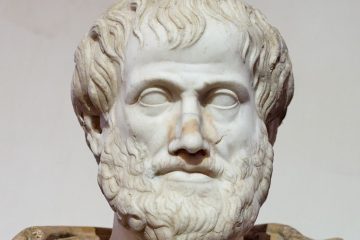I haven’t posted anything in a while, but I’ve of course not stopped reading or working on understanding Aristotle. Here is an essay I worked on on-and-off for the last few weeks 🙂 Don’t mind me very clumsily trying to make some sense of the De Anima and De Motu Animalium.
Bibliography:
Anscombe, G. E. M. (2000), Intention. (2nd ed). Harvard University Press. (Original work published 1957).
Barnes, Jonathan. (1979) [1971-2], ‘Aristotle’s Concept of Mind’, Proceedings of the Aristotelian Society 72 (1971-2): 101-14, repr. in Barnes, Schofield, and Sorabji (1979), 32-41.
Berryman, Sylvia. (2002), ‘Aristotle on Pneuma and Animal Self-Motion’, Oxford Studies in Ancient Philosophy 23: 85-97.
Charles, David. (2009), ‘Aristotle on Desire in Action’, in D. Frede and B. Reis, eds., Body and Soul in Ancient Philosophy (Berlin: De Gruyter), 291-308.
Coope, Ursula. (2020), ‘Animal and Celestial Motion: the Role of an External Springboard: De Motu Animalium 2–3’. in Aristotle’s De motu animalium: Symposium Aristotelicum. : Oxford University Press.
Cooper, John. (2020), ‘The Role of Thought in Animal Voluntary Self-Locomotion: De Motu Animalium 7 (through 701b1)’. in Aristotle’s De motu animalium: Symposium Aristotelicum. : Oxford University Press.
Damasio, Antonio. (1994). Descartes’ error : emotion, reason, and the human brain. G. P. Putnam.
De Groot, Jean. (2008), ‘Dunamis and the Science of Mechanics: Aristotle on Animal Motion,’ Journal of the History of Philosophy 46, 43-67.
Frampton, Michael. (1991), ‘Aristotle’s Cardiocentric Model of Animal Locomotion,’ Journal of the History of Biology 24, 292-330.
Frede, Dorothea. (1992), ‘The Cognitive Role of Phantasia in Aristotle’, in Nussbaum and Rorty (1995) [1992], 279-95.
Frede, Michael. (2011), A Free Will: Origins of the Notion in Ancient Thought. University of California Press.
Gregorić, Pavel. & Corcilius, Klaus. (2013), ‘Aristotle’s Model of Animal Motion’, Phronesis 58: 52-97.
Gregorić, Pavel. & Kuhar, Martin. (2014), ‘Aristotle’s Physiology of Animal Motion: On Neura and Muscles’. Apeiron, 47(1): 94-115.
Hankinson, Robert. (2020). ‘Aristotle and the Mechanics of Desire: De Motu Animalium 7 (from 701b2)–8.’ in Aristotle’s De motu animalium: Symposium Aristotelicum. : Oxford University Press.
Hardie, W. F. R. (1964), ‘Aristotle’s Treatment of the Relation Between the Soul and the Body’, The Philosophical Quarterly 14: 53-72.
Hespos, Susan. & vanMarle, Kristy. (2012), ‘Physics for infants: characterizing the origins of knowledge about objects, substances, and number.’ Wiley Interdisciplinary Reviews: Cognitive Science 3 (1): 19.
Imataki, O. & Uemura, M. (2021), Psychogenic fever due to worry about COVID-19: A case report. Clinical Case Reports. Vol: 9:8.
Irwin, Terence & Aristotle. (2000), Nicomachean Ethics. Indianapolis: Hackett Publishing.
Irwin, Terence. (2000), Ethics as an inexact science: Aristotle’s ambitions for moral theory’. In Brad Hooker & Margaret Olivia Little (eds.), Moral Particularism. Oxford University Press. 100-29.
Kendall-Tackett, K. A., & Eckenrode, J. (1996), The effects of neglect on academic achievement and disciplinary problems: a developmental perspective. Child abuse & neglect, 20(3), 161–169.
Laks, Andre. (2020), ‘Articulating the De Motu Animalium: The Place of the Treatise within the Corpus Aristotelicum’. in Aristotle’s De motu animalium: Symposium Aristotelicum. : Oxford University Press.
Lear, Jonathan. (1988), Aristotle: The desire to understand. Cambridge: Cambridge University Press.
Lorenz, Hendrik. (2006), The Brute Within: Appetitive Desire in Plato and Aristotle. Oxford University Press.
Morison, Benjamin. (2012), Colloquium 2: An Aristotelian Distinction Between Two Types of Knowledge. Proceedings of the Boston Area Colloquium of Ancient Philosophy 27 (1):29-63.
______. (2020), ‘Completing the Argument that Locomotion Requires an External and Unmoved Mover: De Motu Animalium 4–5’. in Aristotle’s De motu animalium: Symposium Aristotelicum. Oxford University Press.
Moss, Jessica. (2012), Aristotle on the Apparent Good: Perception, Phantasia, Thought, and Desire. Oxford University Press.
Nussbaum, Martha. (1976), ‘The Text of Aristotle’s De Motu Animalium’. Harvard Studies in Classical Philology, 80, 111–159.
______. (1978), Aristotle’s De Motu Animalium. Princeton University Press.
Nussbaum, Martha. & Rorty, Amélie (eds.), (1992/1995), Essays on Aristotle’s De Anima. Oxford University Press.
Price, Anthony. (2006), ‘Colloquium 6: Was Aristotle a Particularist?’, Proceedings of the Boston Area Colloquium in Ancient Philosophy, 21(1), 191-233.
Rabinoff, Eve. (2018). Perception in Aristotle’s Ethics. Northwestern University Press.
Rapp, Christof. (2020a), ‘Joints and Movers in the Cliffhanger Passage at the end of Aristotle, De Anima III.10’, in: Gweltaz Guyomarc’h, Claire Louguet, Charlotte Murgier (ed.), Aristote et l’âme humaine. Lectures De De Anima III offertes à Michel Crubellier, Louvain-la-Neuve: Peeters 2020, 273-302.
______. (2020b), ‘The Inner Resting Point and the Common Cause of Animal Motion: De Motu Animalium 1’. in Aristotle’s De motu animalium: Symposium Aristotelicum. Oxford University Press.
Rapp, Christof, & Oliver Primavesi. (2020), eds. Aristotle’s De motu animalium: Symposium Aristotelicum. Oxford: Oxford University Press.
Rowe, Christopher, & Broadie, Sarah. (2002), Nicomachean Ethics. Oxford University Press.
Schultz Wolfram. (2015), ‘Neuronal Reward and Decision Signals: From Theories to Data.’ Physiological reviews, 95(3), 853–951.
Setiya, Kieran. (2021), ‘What is morality?’, Philosophical Studies, 179 (4):1113-1133.
______. (Host). (2021, June 8th), Sarah Moss [Audio podcast episode]. Five Questions. Anchor by Spotify.
Sorabji, Richard. (1990), Perceptual Content in the Stoics. Phronesis, 35(3), 307–314.
Shields, Christopher & Aristotle. (2016), De Anima. Oxford University Press UK.
Solmsen, Friedrich. (1961), ‘Greek Philosophy and the Discovery of the Nerves,’ Museum Helveticum 18, 150-97.
Taylor, C. C. W. (2003), Pleasure: Aristotle’s Response to Plato. In Robert Heinaman (ed.), Plato and Aristotle’s Ethics. Aldershot: Ashgate Publishing, 1–20.
Ullman, Tomer. Spelke, Elizabeth. Battaglia, Peter. & Tenenbaum, Joshua. (2017) Mind Games: Game Engines as an Architecture for Intuitive Physics, Trends in Cognitive Sciences, Vol: 21, Issue 9, p. 649-665.
van der Eijk, Philip. (2000), Diocles of Carystus : a collection of the fragments with translation and commentary. Leiden: Brill.

